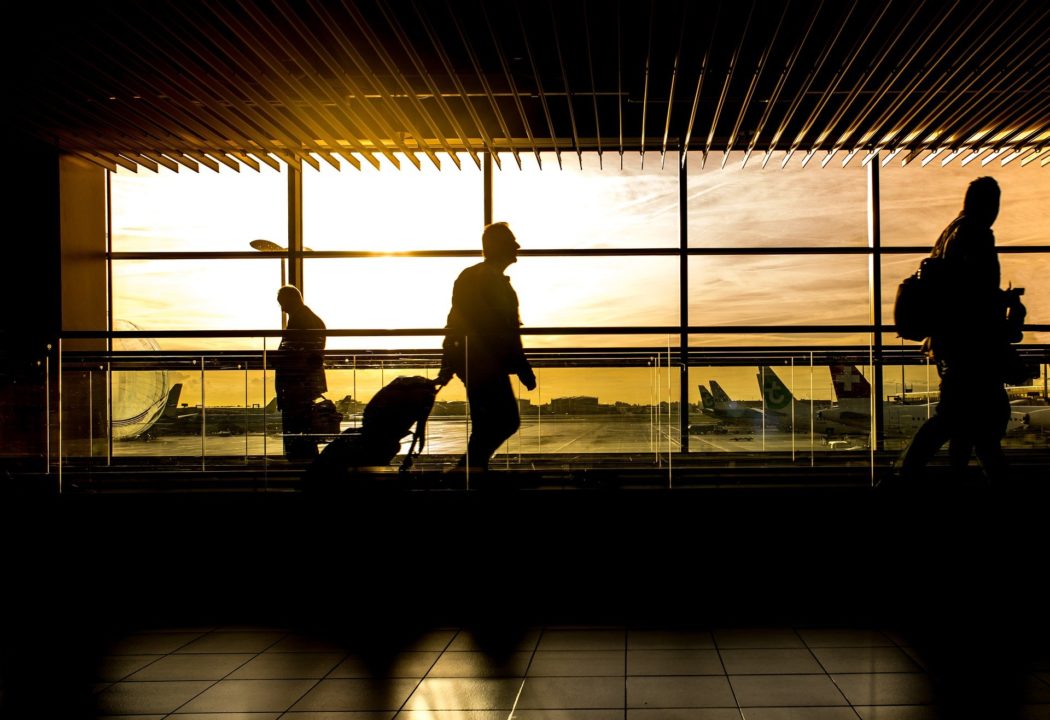A growing number of countries have banned flights from the UK in a bid to stop a mutant strain of coronavirus crossing their borders.
It comes as tough new restrictions mean mainland Scotland will be placed into a full lockdown from Boxing Day, while a planned relaxation of rules for the festive period were scaled back to Christmas Day only.
There are fears the strain that has raised concerns may be up to 70% more transmissible than the old variant and could increase the R number by 0.4.
The development has seen governments across the world react to prevent the spread of the strain.
Here are the answers to some key questions on the latest changes to international travel rules.
Which European countries have banned flights from the UK?
France, Germany, Italy, Poland, Belgium, Austria, Bulgaria, Finland, Denmark and the Netherlands have all said they will halt flights arriving from the UK.
The Czech Republic has imposed stricter quarantine measures for people arriving from Britain.
Which other countries have implemented travel bans?
Turkey and Morocco have announced they will be suspending air travel from the UK, while the official Saudi Press Agency reports Saudi Arabia is also suspending international flights for one week.
El Salvador is barring entry to anyone who has visited the UK in the preceding 30 days.
Canadian prime minister Justin Trudeau said from midnight Sunday, Canada was putting a 72-hour stop on flights from the UK.
When do the flight bans start and how long do they last?
The Netherlands ban came into force on Sunday morning, with it due to last for at least the rest of the year.
Belgium’s prime minister Alexander De Croo issued a flight ban order for 24 hours starting at midnight on Sunday.
Italy’s health minister Roberto Speranza said an order was signed on Sunday blocking flights from Britain and preventing anyone who had been to the UK in the last 14 days from entering Italy. The order bans plane travel until January 6.
Austria’s ban on flights from the UK starts at midnight on December 22 and anyone arriving in the country before that date must quarantine for 10 days. It is unclear how long the ban will last.
Germany said it was banning flights from the UK starting at midnight, Berlin time, on Sunday, with the German dpa news agency reporting it would remain in place until at least December 31.
France has banned all travel from the UK for 48 hours from midnight on Sunday.
Bulgaria said it was temporarily ceasing flights to and from the UK from midnight on Sunday.
Finland is due to suspend all passenger flights with the UK for two weeks from Monday.
Poland is also due to halt flights from midnight on Monday, though it is not yet known how long the ban will be in place.
Denmark said all flights from Great Britain would be halted for 48 hours from Monday.
What is the situation with Ireland?
The Irish Government said on Sunday that it was imposing a 48-hour ban on flights from Britain to Ireland.
The restrictions come into force at midnight on Sunday.
Is anyone exempt from the bans?
Ireland’s transport minister Eamon Ryan said ferries will continue to operate for freight between Britain and Ireland.
“We need haulage coming in to keep our shelves full but other passengers will be restricted,” he said.
The German government said exemptions from its flight ban include repatriation flights of planes and their crews, postal, freight or empty flights and aircraft carrying medical personnel.
The Bulgarian embassy in London said on its website that Bulgarian citizens and their families, as well as permanent residents in Bulgaria, were able to enter the country subject to a 10-day quarantine if they fly through a different country or enter Bulgaria on land or by sea.
What discussions are taking place between governments?
An EU crisis meeting has been called for Monday to discuss the coordination of the response to coronavirus among the 27 member states.
The UK’s Foreign, Commonwealth and Development Office (FCDO) regards other countries’ travel restrictions as a matter for their own governments. It was previously understood to be in touch with international partners and monitoring the situation closely.
But late on Sunday night No 10 revealed that Prime Minister Boris Johnson is due to chair a meeting of the UK Government’s Cobra civil contingencies committee on Monday.
Why is this all happening?
A mutant strain of coronavirus has prompted the EU nations to start restricting inbound flights from the UK.
De Croo said Belgium’s flight ban was “out of precaution”, adding: “There are a great many questions about this new mutation and if it is not already on the mainland.”
The German embassy in London tweeted that flight restrictions were the result of “the coronavirus mutation”.
On Saturday, Mr Johnson said there was “no evidence” the new variant “causes more severe illness or higher mortality” but “it does appear to be passed on significantly more easily”. He said the new strain could be up to 70% more transmissible than the old virus variant.
Are international train and ferry links running?
Eurostar said it was unable to run trains from London to Paris, Brussels, Lille or Amsterdam on Monday or Tuesday.
Trains to London from Paris will continue to operate, with the rail company saying it planned to resume services to and from the UK on Wednesday.
Eurotunnel said access to its UK site was prohibited from 10pm after its last train left at 9.34pm.
Dover’s ferry terminal has also closed to “all accompanied traffic leaving the UK” after France moved to shut its border.
Follow STV News on WhatsApp
Scan the QR code on your mobile device for all the latest news from around the country


 Pixabay
Pixabay

























